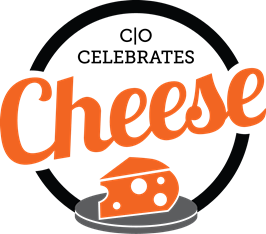
When it comes to cheesemaking at UW-Madison’s Babcock Hall Dairy Plant, the nation’s first and most renowned dairy school, there are three ways of doing things: the right way, the wrong way and Gary’s way.
Gary Grossen is Babcock’s legendary Master Cheesemaker, and he has been running cheese production at Babcock since 2005.
With over 50 years of cheesemaking experience, and too many awards to count, Gary has over nine years of Master Cheesemaker® certification courses—yet his biggest contribution to his craft is pride.
He is proud to turn farmers’ quality milk into a quality product, proud to create cheese that consumers love, proud to contribute to the most important sector of Wisconsin’s economy and proud to share his expertise with future cheesemakers.
All of these things, he says, are the rewards and reasons why he loves his job.
In my past life I worked with Gary while I was a student employee at the Babcock Hall Dairy Plant and Store. Gary was kind enough to let me return to spend the morning. Surprisingly, his dairy wisdom provides good nuggets of advice for life in general:
Your family has a long history in cheesemaking, but how did you become involved?
My parents were partners at the Prairie Hill Cheese Co-op in Monroe. We lived above the factory, and from the time that I was old enough to help, probably five or six, I would help label cheese and whatnot. In high school, I worked in the plant before and after class.
Why cheese?
I just always knew this is what I’d do. Everyone’s dad in Green County was a cheesemaker, and by the time we graduated high school, we all just knew that’s what we would do as well. I never considered any other career.
What was it like running the Prairie Hill factory?
As a cheesemaker, I have worn many hats. At Prairie Hill, not only was I the cheesemaker, but I was also the mechanic, the salesman and the marketer. I had to market myself to suppliers and market and sell my cheese to buyers and consumers. The marketing aspect is really important. I had to build trust with my suppliers and ensure them that I would turn their milk into a quality product that would make them money. On the other hand, I had to ensure my buyers that my product was what consumers wanted.
What do you think is the most important part of marketing cheese?
In my dad’s day, the only important thing was doing the work—making the cheese. Now, that’s not enough. You have to go out and make yourself and your cheese known. And today, more than ever before, consumers want to know where their food comes from, so I think telling that story is crucial.
How did obtaining the Master Cheesemaker certification enhance your career?
It allowed me to dig deeper into the “whys” and “hows” of cheesemaking. It’s also a great marketing tool because it builds credibility and trust with both suppliers and consumers. Overall though, it provides hands-on experience, which is the most important part of becoming an expert cheesemaker. Experience allows you to make mistakes, and making mistakes is the number-one teacher. Learning from mistakes is what helps you overcome challenges and succeed even when things go wrong.
What’s it like teaching at Babcock Hall Dairy Plant?
I love it! Working with students and sharing my knowledge with them. I work with the food and dairy science students, lead cheese apprenticeships, teach an artisan cheese course and provide the necessary 240 hours of work needed to obtain a cheesemaker’s license. For the future of cheesemaking to be successful, the industry needs hardworking, smart leaders. I think students can have all of the education in the world, but if they don’t have common sense, then they’re lost.
Gary logic: Make wise use of time, follow a system, have common sense and don’t be afraid to help another person.
What is your favorite cheese to make?
Swiss, because it’s the most challenging. In order to create the eyes, conditions need to be just right. The success depends on several factors: from the cow’s feed, to the time of the year, to the temperature in the plant. To get perfect eyes despite all those factors is really rewarding.
Do you think cheesemaking is an art?
Absolutely. Every single batch of cheese is unique, and each cheesemaker has different techniques. Artisan cheese, which is made in small factories, is a big reason why this industry is so successful. Can anyone throw the right ingredients in a vat and make cheese? Sure, but to improve and perfect your cheese, it takes years and years of experience. You need experience to know the nuances, such as how different bacteria cultures work together, how to tell the quality of your milk, etc.
What qualities make a successful cheesemaker?
Cheesemakers are cut from a different cloth. We have no choice but to be hard workers. Cheesemaking is not an 8-hours-a-day and then you’re done kind of job. Additionally, each cheesemaker has his or her own unique ways and opinions about making cheese. Like I said before, having years of experience and common sense are some of the most important qualities.
Gary logic: You also need to make sure that work is fun. If you can’t laugh, then what’s the sense?
The most inspiring aspect of my time with Gary was his genuine passion. After showing me a freshly sliced batch of perfectly made Swiss, he explained how each batch of cheese’s moisture content is tested in the lab, and then added with a whisper: “But I can always tell just by feeling it.”
C.O.nxt Insight.
Our team of subject matter experts focuses on food and agriculture—farm field to processing to entrée on a plate. We can help you build a new brand, protect an old one or target customers to foster sales. Let’s talk when the time is right to handle your next strategic marketing and communications challenge: Marcy Tessmann, marcy@co-nxt.com.
SHARE THIS STORY
What Would You Solve in 30 Days?
Every brand faces moments when clarity, momentum, or alignment are lacking. Sometimes it’s a new product that needs a smart go-to-market plan. Other times, it’s a shift in the business that calls for a tighter
